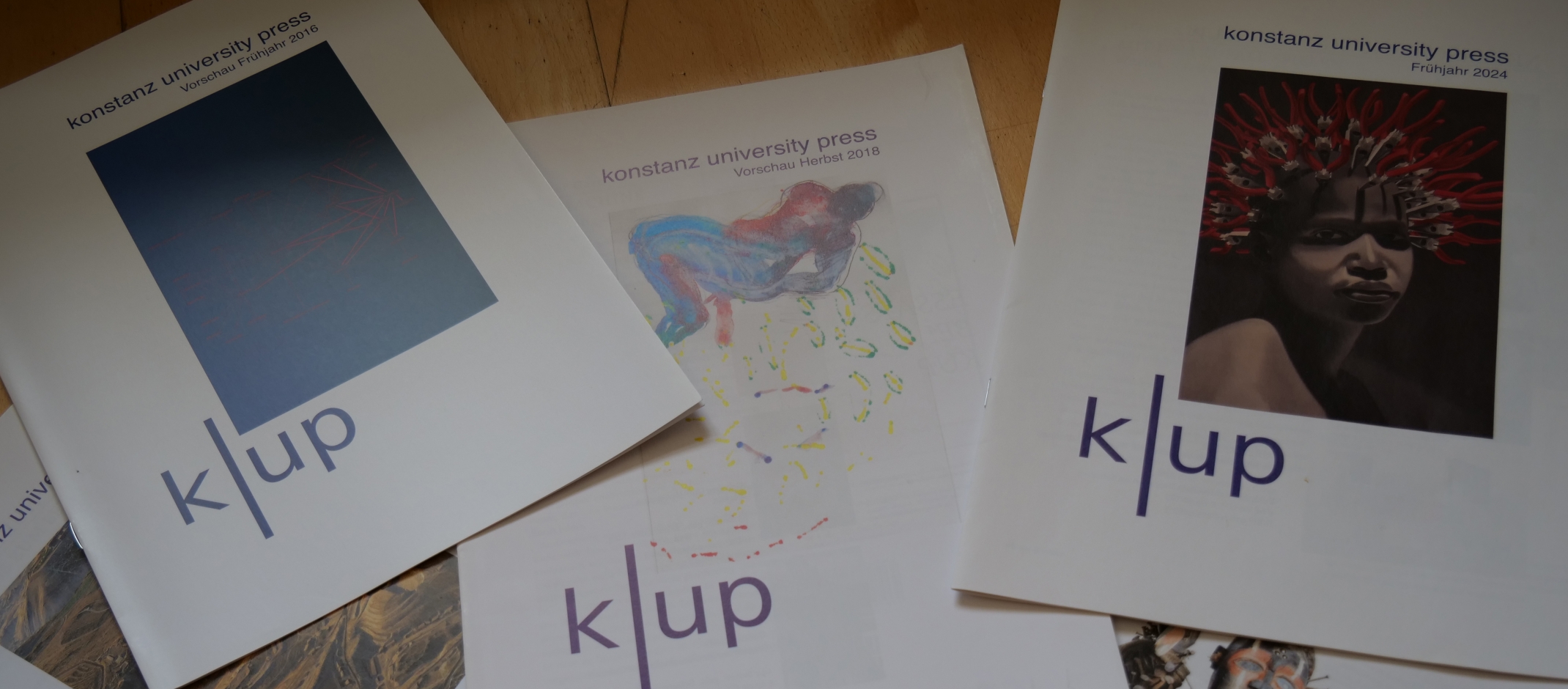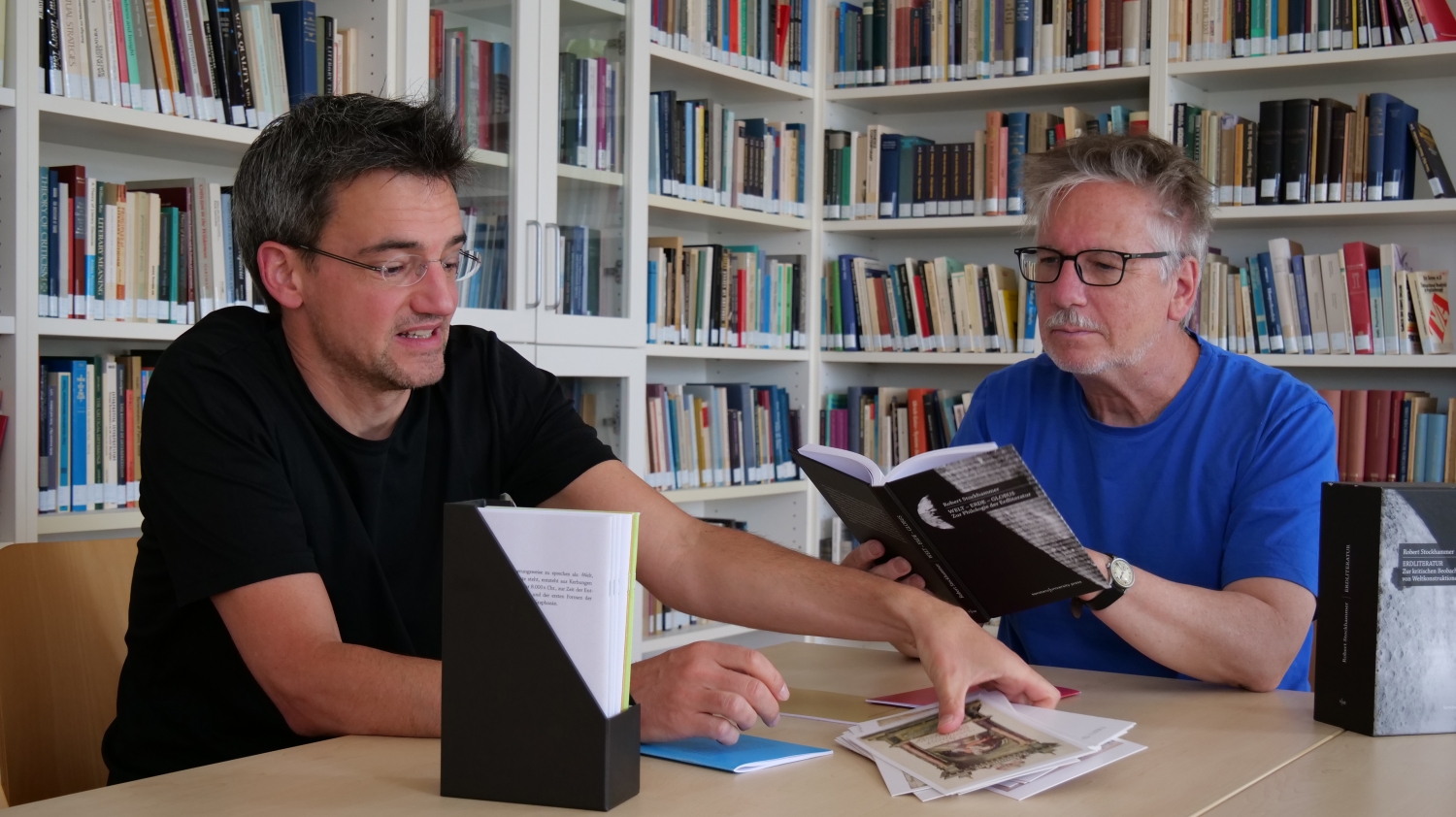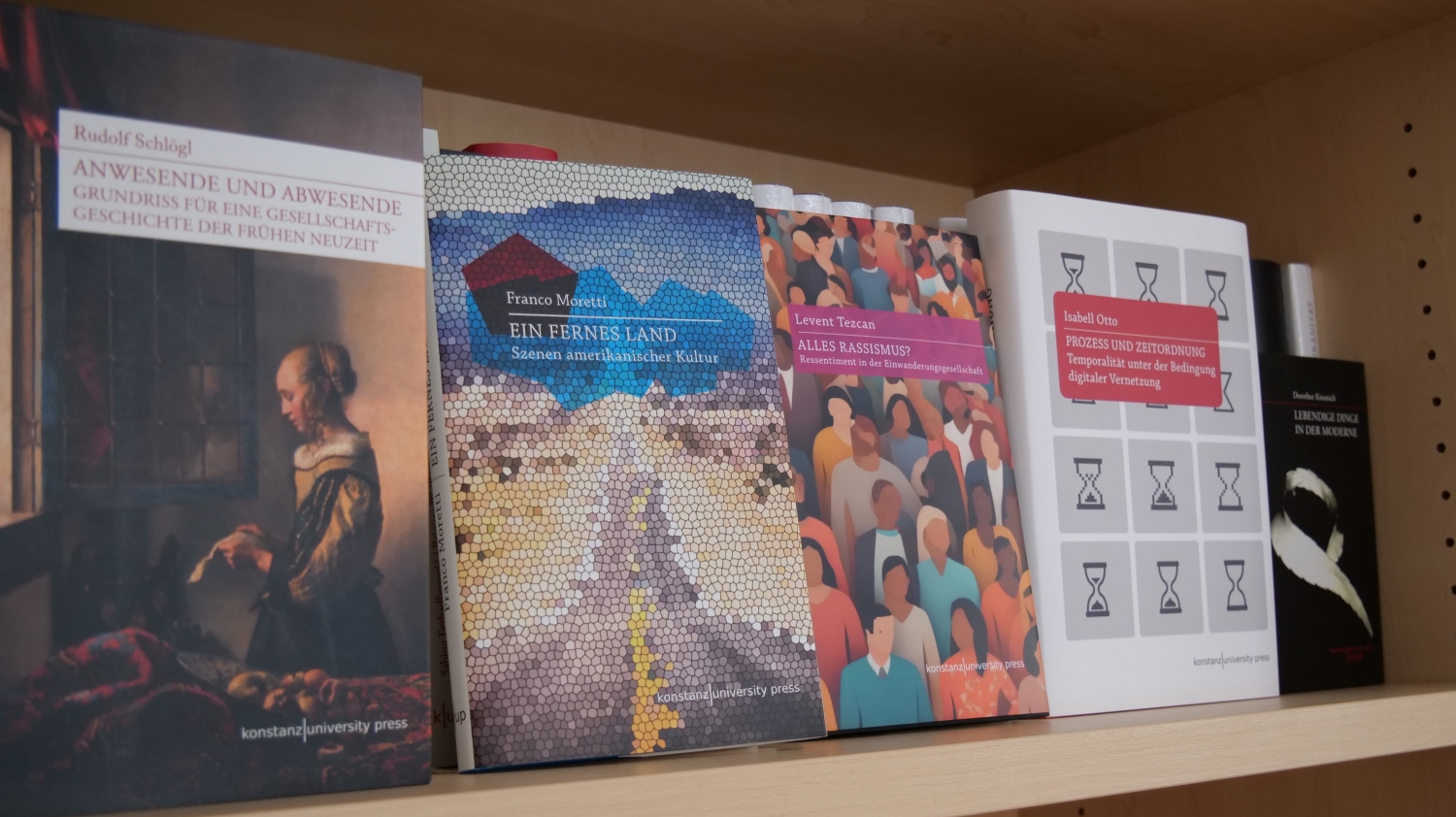Academic publishers: in good company?

The Konstanz Cluster of Excellence was the only one of its kind to establish its own publishing house. What was the underlying motivation?
Alexander Schmitz: As far as I know, the University of Konstanz had been considering setting up a university publishing house for some time. However, the plans only became more concrete with the former Cluster of Excellence "Cultural Foundations of Social Integration". One consideration was that particularly the qualification publications in the humanities and cultural sciences, which continue to be published in monograph form, would benefit immensely from academic editing.
How does konstanz university press differ from other university publishers?
Bernd Stiegler: Most university publishers in Germany see themselves as in-house publishers. In other words, as a publication medium for specific projects that have emerged at the respective universities, from anthologies to monographs to documentations of research networks.
We, on the other hand, chose the Anglo-American model. If you think of Cambridge or Oxford University Press, or American book publishers like Harvard UP, you quickly realize that their programme is structurally open. From the very beginning, we aimed at an attractive interdisciplinary, but at the same time cultural studies-oriented programme, in which authors from Konstanz are also represented, with the same conditions applying to them as to all others.
What does this mean for the selection of manuscripts?
Bernd Stiegler: Decisions on acceptances and rejections are taken by our editorial board, whose majority is made up of non-Konstanz staff. This means that even Alexander Schmitz and I cannot accept books without obtaining the board's approval. And our editorial board is set up in such a way that it also signals its competence of valorizing and assessing manuscripts to the outside world. It consists of internationally renowned colleagues from different specialist areas.
© University of Konstanz, Marion VoigtmannBernd Stiegler (right), professor of modern German literature at the University of Konstanz and kup publishing director, and Alexander Schmitz (left), academic editor at kup.
To what extent is this model advantageous for researchers?
Alexander Schmitz: Academic publications undergo a selection process in the academic institutions, and, in many cases, an additional external peer review process. While this is the established procedure in American and English publishing houses for journals, and often for monographs, too, this is only partially the case for monographs in Germany. But it is crucial for scientific publications that it does not seem they have been included in a publishing programme due to bias.
If a university publisher includes in-house publications in its programme from the outset, this certainly is a great service. However, this automatically creates the impression of bias. Considering the review criteria and thus the branding of a publishing house and the researchers publishing there, this actually is not a good idea.
Bernd Stiegler, you worked as head of the research programme at Suhrkamp for a long time. To what extent did your experiences influence the conception of konstanz university press?
Bernd Stiegler: The experience I had at Suhrkamp has relatively little to do with how a small publisher like konstanz university press works. Suhrkamp is a large tanker in the academic publishing industry and we are, at best, a small frigate. The infrastructure and framework conditions of an academic programme at Suhrkamp are also completely different. Where my experience in the publishing sector helped, however, was with questions that had to be clarified before the publishing house was founded: How do you set up a publishing house and what do you need to bear in mind? We intensively discussed the institutional and organizational framework conditions in advance.
"We wanted to develop a lean, transparent and at the same time manageable model for the university that would not have any teething problems."
Bernd Stiegler
What did this look like in concrete terms?
Bernd Stiegler: We looked for a publishing company to house us as imprint, taking over most of the organizational tasks that we would not have been able to perform within our framework. This ranges from royalty accounting and the conclusion of author contracts to distribution, printing and beyond. Otherwise, we would have had to found a medium-sized publishing house. Another difficulty: Our balance sheet would have had to be in the black, but at the same time the university is not allowed to set up profit-making companies.
As a solution, we have found a model in which our publishing parent company, now Wallstein, is responsible for the economic, sales and legal aspects of our books, while we are responsible for the entire programme, design and academic editing. So there are two separate areas of responsibility: one focuses more on content, the other on organizational, administrative and operational aspects. That was the idea.
Did the idea work out economically?
Alexander Schmitz: Publishing costs for those still printing books have exploded in recent years: due to energy and paper prices, due to material costs. If we didn't have that in mind, it quickly would become a problem. There are always a few publications that make a profit and many where you break even. That is the normal business mix you have with different products in such a market.
We print first editions of at least 300 copies, which is now a lot in the field of research. Many publishers no longer print any first editions of qualification publications. They directly go to market as books on demand or print on demand, i.e. they no longer target the book trade at all, but only very specific specialist interests, which then lead to individual orders.
© University of Konstanz, Marion VoigtmanRudolf Schlögl, Franco Moretti, Levent Tezcan, Isabell Otto und Dorothee Kimmich have published with kup.
Valentin Groebner, Dorothee Kimmich, Franco Moretti and Rudolf Schlögl have published with kup. What is the incentive for renowned researchers, who could actually publish anywhere, to go to kup?
Bernd Stiegler: There are a handful of major publishers in Germany who are undoubtedly more attractive than we are: Publishers such as Hanser, Suhrkamp, Fischer etc. But there are very few of them. And after that, there is a very small midfield of publishers with whom we think we are roughly on a par. Here it is more a question of which publisher authors feel most comfortable with or think they have a good context. As an author, you look for good company, you want to feel comfortable with the publisher and the titles that have already been published there. Authors decide based on how attractive they find the programme, in terms of its subject orientation as well as its political, ideological and academic orientation.
I think there are very good reasons to publish a book with konstanz university press, especially since we have very good reviews now, too. Many of our publications are also reviewed in cross-regional magazines, not just in specialist journals.
We have already talked about attractive publishing programmes. What is kup's focus?
Alexander Schmitz: Since the University of Konstanz’s foundation, the humanities, and later also cultural studies, have been one of its focus areas. kup was founded to give this university research, which has always been interdisciplinary in Konstanz, a face to the outside world. The aim has therefore always been to produce publications that are not only relevant to the narrowest circle of experts, but are theoretically far-reaching and do not get bogged down in details.
Bernd Stiegler: The interdisciplinary orientation of all titles means that we do not aim at specialist publications for individual fields. Instead, we want books that are also of interest to readers from other subject areas.
Academic editing requires specialist expertise, because manuscripts from subject areas you are not familiar with are rather difficult to edit. I experienced that at Suhrkamp. For a while, they also published natural sciences books, which pushes you to the limits as an editor. This, of course, equally applies to the humanities and cultural sciences.
What is your wish for the future of the publishing house?
Bernd Stiegler: First of all, what everyone wants: Sustainability. This is something that seems to be guaranteed, at least for the foreseeable future. And beyond that, freedom of action and leeway, which depend on various factors, such as a certain budget for translations. We have included a whole series of translations from various languages in our programme that seemed to be important for German discussion contexts or that were in a context that is relevant for research in Konstanz. Most recently, for example, a book by Peter Probst on the much-debated question "What is African art?" or titles by Georges Didi-Huberman, which have a permanent place in our programme.
Alexander Schmitz: I would of course like to have interesting authors with great publication proposals and topics that surprise me, too. As an editor, I read these works and am happy to learn something in the process. In general, I appreciate it when I can accompany researchers over many years. For some, their qualification thesis is the first thing we publish for them. Later they move on to interesting positions within the university or elsewhere and then return to publish with us. That is also part of sustainability in publishing.
We have accompanied individual academics from their doctorate to professorship. Levent Tezcan, now a professor in Münster, was a fellow in the Cluster of Excellence "Cultural Foundations of Social Integration". We published the book Das muslimische Subjekt, which he wrote during this time. Now, kup is publishing his new book, Alles Rassismus?
Headerimage: University of Konstanz, Marion Voigtmann


